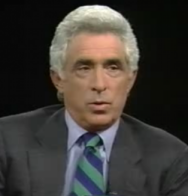A Quote by Mitt Romney
By making bold cuts in spending and commonsense entitlement reforms, we will make our government simpler, smaller, and smarter.
Related Quotes
By the time we get to the 2040s, we'll be able to multiply human intelligence a billionfold. That will be a profound change that's singular in nature. Computers are going to keep getting smaller and smaller. Ultimately, they will go inside our bodies and brains and make us healthier, make us smarter.
If the US Government was a family—they would be making $58,000 a year, spending $75,000 a year, & are $327,000 in credit card debt. They are currently proposing BIG spending cuts to reduce their spending to $72,000 a year. These are the actual proportions of the federal budget & debt, reduced to a level that we can understand.
What does it mean when Republicans and Democrats alike warn us about the 'pain' involved in cutting government spending - in their spending less of our money? For the average citizen, what pain is there in his keeping more of his money to invest it the way he wants? Taxes cost people. Tax cuts do not cost government.
Freedom is messy. In free societies, people will fall through the cracks - drink too much, eat too much, buy unaffordable homes, fail to make prudent provision for health care, and much else. But the price of being relieved of all those tiresome choices by a benign paternal government is far too high. Big Government is the small option: it's the guarantee of smaller freedom, smaller homes, smaller cars, smaller opportunities, smaller lives.
I am honored that my freshman class colleagues have put their trust in me to represent our historic class at the leadership table. The incoming freshman class of Representatives is large and diverse but we share many common goals including cutting wasteful spending, getting our economy back on track and making government smarter and more efficient.
































